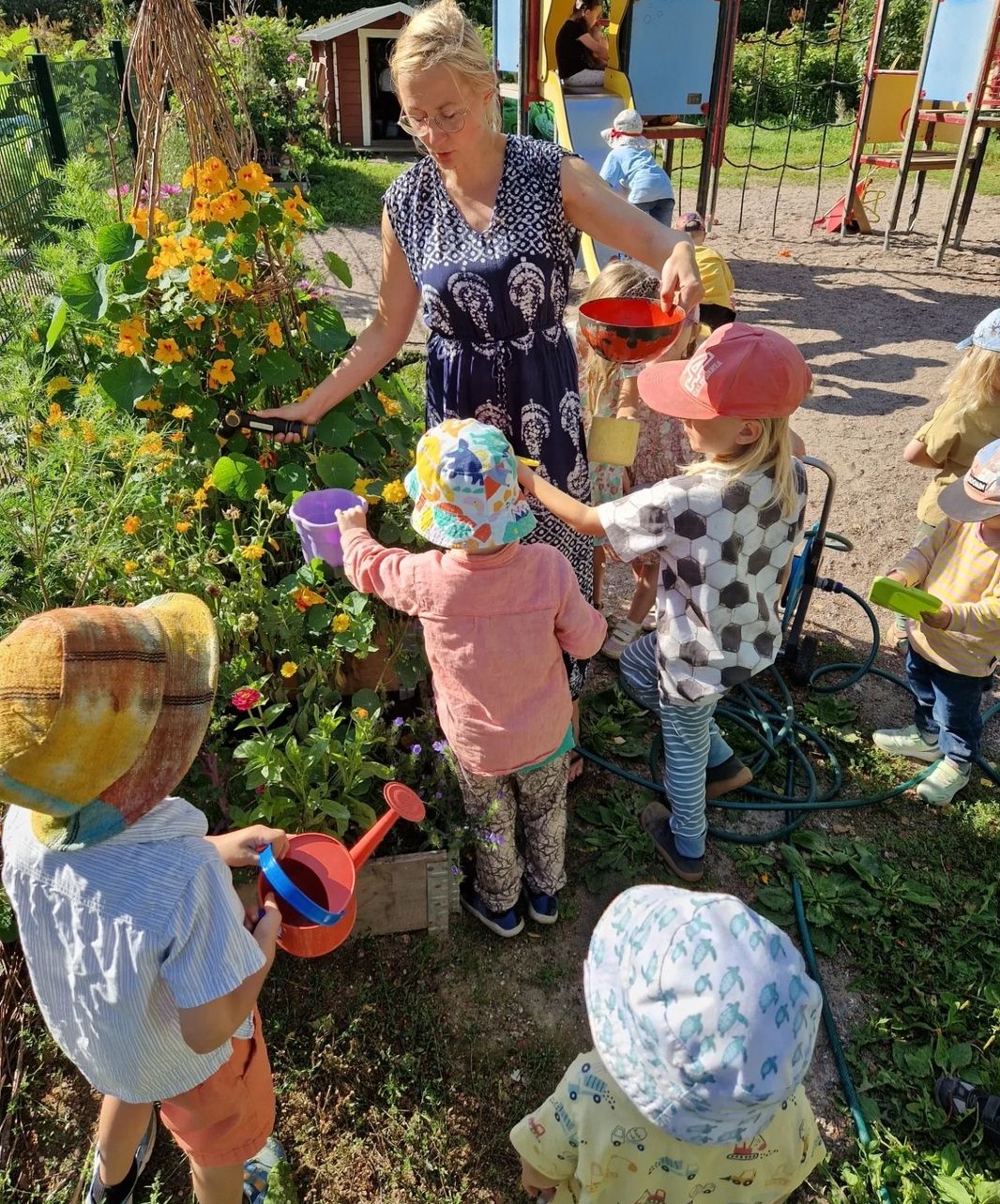
Topic(s) addressed
This project addressed the wellbeing of children through creating nurturing spaces for their age; the wellbeing of their families through greater engagement; the wellbeing of families, children and daycare workers through creativity and maintaining a sustainable and natural outdoor area and functioning garden; and the wellbeing of the community through joint learning experiences.
Target group(s)
The project targeted the whole day care centre, including 30 children and their families.
Methodologies
The main learning and teaching approach throughout the project was participant observation and cooperation. Teachers observed and participated in the functions of the day care centres and actively learned through conversations and questions. The project was conducted in cooperation with the parents and children, creating possibilities for practical and active learning, as well as learning through cooperation and inclusion.
Innovation environment
The garden innovation allowed children to learn about living with and within nature through observing and participating in the process of maintaining the garden as well as growing and harvesting, the garden’s produce and finding creative solutions using the available resources. The garden creates possibilities for social, practical, emotional, and sensory experiences and supports holistic learning. The communal effort and engagement in maintaining the garden serve as a positive social learning environment that complements the physical learning environment.
Teachers’ role
All staff members participated, as they understood the influence of teachers and the motivational benefits produced. Possibilities for cooperation and peer learning were supported when teachers learned from the different practices in other daycare centres. Innovation was enriched by the exchange of thoughts and experiences. The activities also inspired the neighbouring daycare centre and the neighbouring community.
Impact and output
Parents’ understanding of the life and experiences of the children grew as they found participation meaningful. For children living in an urban environment, interactions with nature can be strange, but the garden aided in building a relationship with and respect towards nature. The garden has served as an inspiration to the local neighbourhood due to its beauty and its ability to inspire imaginative play. The project also enhanced staff wellbeing.
Video
- Reference
- 2021-2-FI01-KA122-SCH-000041810
- Project locations
- Finland
- Project category
- Early childhood education and care
- Project year
- 2024
Stakeholders
Coordinators
Steinerpäiväkoti Siriuksen kannatusyhdistys ry
- Address
- Finland
Participants
Waldorfkindergarten Überlingen
- Address
- Germany
Waldorfkindergarten Wahlwies
- Address
- Germany
